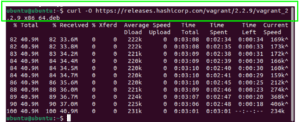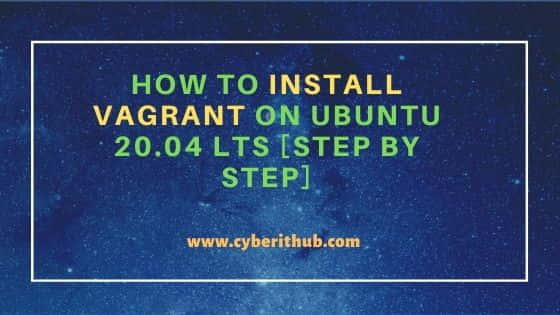

- CONNECT PSEQUEL TO VAGRANT UBUNTU INSTALL
- CONNECT PSEQUEL TO VAGRANT UBUNTU DRIVERS
- CONNECT PSEQUEL TO VAGRANT UBUNTU UPGRADE
- CONNECT PSEQUEL TO VAGRANT UBUNTU SOFTWARE
Queuing services are similar to the ones offered by Laravel.
CONNECT PSEQUEL TO VAGRANT UBUNTU INSTALL
For example, you can install the illuminate /redis package via Composer to use a Redis cache with Lumen.Įrrors and Logging are implemented via the Monolog library, which provides support for various log handlers.
CONNECT PSEQUEL TO VAGRANT UBUNTU DRIVERS
Cache drivers such as Database, Memcached, and Redis are supported. However, incoming requests are authenticated via stateless mechanisms such as tokens.Ĭaching is implemented the same as in Laravel. This includes basic routing, routing parameters, named routes, and route groups such as middleware.Īuthentication does not support session state. Routing is provided out of the box in Lumen. These are some of the built-in features of Lumen:

CONNECT PSEQUEL TO VAGRANT UBUNTU UPGRADE
As such, Lumen is built to painlessly upgrade directly to Laravel when needed for example, when you discover that you need more features out of the box than what Lumen offers. Lumen utilizes the Illuminate components that power the Laravel framework. With Lumen, you can build lightning-fast microservices and APIs that can support your Laravel applications. Lumen is an open-source PHP micro-framework created by Taylor Otwell as an alternative to Laravel to meet the demand of lightweight installations that are faster than existing PHP micro-frameworks such as Slim and Silex.


TL DR: In this tutorial, I'll show you how easy it is to build and secure an API with Lumen. vagrant/machines/default/virtualbox/private_keyĭebug1: Authentication succeeded (publickey).Īuthenticated to localhost (:2222).ĭebug1: Local connections to LOCALHOST:5432 forwarded to remote address localhost:5432ĭebug1: Local forwarding listening on ::1 port 5432.ĭebug1: Local forwarding listening on 127.0.0.1 port 5432.ĭebug1: Requesting Entering interactive session.This post has been updated to Lumen 7.x and Auth0 PHP SDK 7.x. vagrant/machines/default/virtualbox/private_key-cert type -1ĭebug1: Server host key: ecdsa-sha2-nistp256 SHA256:eo5vr5qNRTMBExXiijYoqIcdtrLtpeAD7hyWZlR+4cwĭebug1: Host ':2222' is known and matches the ECDSA host key.ĭebug1: Found key in /Users/****/.ssh/known_hosts:25ĭebug1: Authentications that can continue: publickey,passwordĭebug1: Next authentication method: publickeyĭebug1: Offering RSA public key: /Users/****/.ssh/id_rsaĭebug1: Trying private key. vagrant/machines/default/virtualbox/private_key type -1ĭebug1: identity file. vagrant/machines/default/virtualbox/private_key -o ExitOnForwardFailure=yes -o ConnectTimeout=30 -o TCPKeepAlive=no -o ServerAliveInterval=60ĭebug1: Reading configuration data /Users/*****/.ssh/configĭebug1: identity file. Ssh_askpass: exec(/usr/X11R6/bin/ssh-askpass): No such file or directoryĪnd I verified that my vagrant uses 2222 for ssh and I have forwarded port 5432 as well.
CONNECT PSEQUEL TO VAGRANT UBUNTU SOFTWARE
Debug1: Reading configuration data /Users/seer/.ssh/configĭebug1: Reading configuration data /etc/ssh/ssh_configĭebug1: /etc/ssh/ssh_config line 21: Applying options for *ĭebug1: /etc/ssh/ssh_config line 56: Applying options for *ĭebug1: Connecting to localhost port 2222.ĭebug1: connect to address ::1 port 2222: Connection refusedĭebug1: key_load_public: No such file or directoryĭebug1: identity file /path/to/project/.vagrant/machines/default/virtualbox/private_key type -1ĭebug1: identity file /path/to/project/.vagrant/machines/default/virtualbox/private_key-cert type -1ĭebug1: Enabling compatibility mode for protocol 2.0ĭebug1: Local version string SSH-2.0-OpenSSH_6.9ĭebug1: Remote protocol version 2.0, remote software version OpenSSH_6.6.1p1 Ubuntu-2ubuntu2.7ĭebug1: match: OpenSSH_6.6.1p1 Ubuntu-2ubuntu2.7 pat OpenSSH_6.6.1* compat 0x04000000ĭebug1: Authenticating to localhost:2222 as 'vagrant'ĭebug1: expecting SSH2_MSG_KEX_ECDH_REPLYĭebug1: Server host key: ecdsa-sha2-nistp256 SHA256:8/Fu88iIZemFSiQwTZ3uK/jBzLX3mYMkW4HalHtPPlIĭebug1: read_passphrase: can't open /dev/tty: Device not configured


 0 kommentar(er)
0 kommentar(er)
